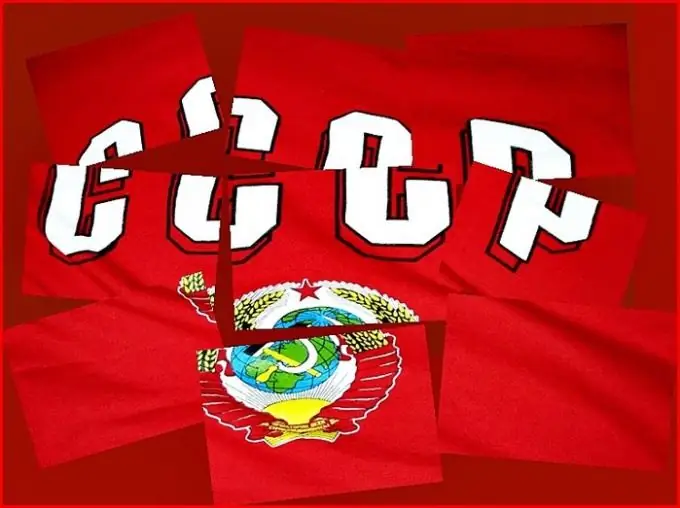- Author Antonio Harrison harrison@cultureoeuvre.com.
- Public 2023-12-16 07:44.
- Last modified 2025-01-22 21:44.
For a long time, the Union of Soviet Socialist Republics was, along with the United States of America, one of the two superpowers. In terms of many important economic indicators, it ranked second in the world, second only to the same United States, and in some cases even surpassed them.

The USSR has achieved tremendous success in the space program, in the extraction of minerals, the development of remote regions of Siberia and the Far North. Very unexpectedly, it broke up in December 1991. For what reasons did this happen?
The main socio-ideological reasons for the collapse of the USSR
The USSR included 15 national republics that were very different in all respects, industry and agriculture, ethnic composition, languages, religion, mentality, etc. Such a heterogeneous composition concealed a time bomb. To unite the country, consisting of such different parts, a common ideology was used - Marxism-Leninism, which proclaimed its goal to build a classless communist society of "abundance".
However, everyday reality, especially since the second half of the 70s of the last century, was very different from the program slogans. It was especially difficult to combine the idea of impending "abundance" with a shortage of goods.
As a result, the overwhelming majority of the inhabitants of the USSR stopped believing in ideological clichés.
A natural consequence of this was apathy, indifference, disbelief in the words of the country's leaders, as well as the growth of nationalist sentiments in the union republics. Gradually, more and more people began to come to the conclusion that it was impossible to live like this.
The main military-political reasons for the collapse of the Soviet Union
The USSR actually had to bear a gigantic burden of military spending on its own in order to maintain the balance of the Warsaw Pact headed by it with the NATO bloc, since its allies were immeasurably weaker in military and economic terms.
As military equipment became more complex and more expensive, it became more difficult to sustain such costs.
The war in Afghanistan (1979-1989) was a very heavy blow to the economy of the USSR. In addition, great social and political damage was inflicted on it. Finally, a significant drop in oil prices played a role, the sale of which brought the USSR most of its foreign exchange earnings.
The new leadership of the USSR, headed by M. S. Since 1985, Gorbachev has proclaimed the policy of so-called perestroika, which initially aroused great and genuine enthusiasm. However, the restructuring was carried out very ineptly and inconsistently, which only exacerbated many problems. And with the emergence of national conflicts, very fierce and bloody in various republics, the collapse of the USSR became a foregone conclusion.






